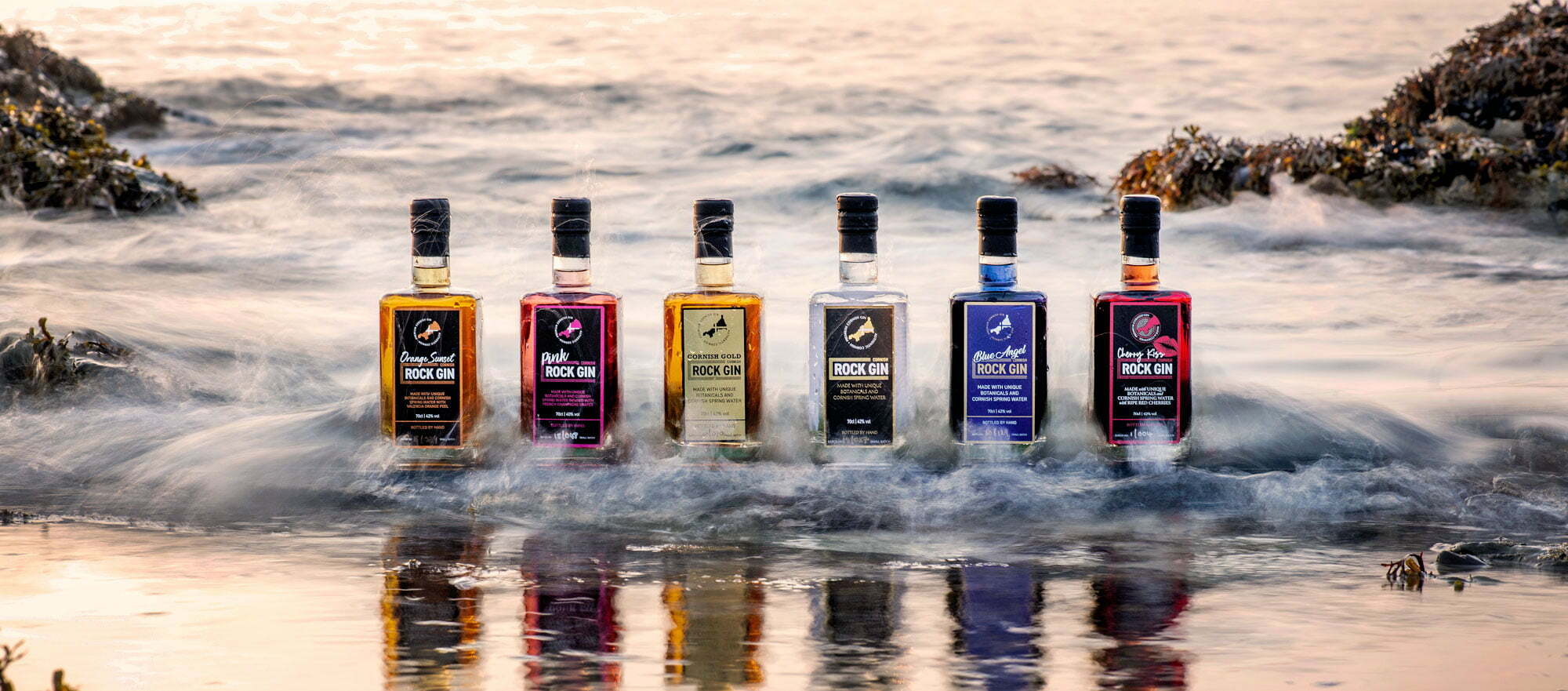
The History of Gin and it's Impact on Cornwall
Farm diversification, the rise of the cottage entrepreneur, a temperate oceanic climate and vastly improved, speedier, road links to the U.K.’s distribution centres are big contributors to the emergence and meteoric growth of the Cornish Spirits industry and, of course, a thirst for the product in the first place!
Gin’s Origins
The name gin is a shortened form of the older English word genever, related to the French word genièvre and the Dutch word jenever. All ultimately derive from juniperus, the Latin for juniper.
History tells us that the first Gin was produced in Holland in the late sixteenth century, as a juniper based distilled spirit specifically intended for medicinal purposes – having inexpensive diuretic properties. It was thought it could be a cure for gout and indigestion. At that time Britain had a Dutch king (William lll – William of Orange) and his accession led to the landed gentry of Great Britain becoming avid gin drinkers. English people, as an act of patriotism, and because it was cheap, adopted Gin into daily life.
By the early 1700’s Gin had become a societal problem. The gin obsession was blamed for misery, rising crime, madness, higher death rates and falling birth rates. Gin joints allowed women to drink alongside men for the first time and it is thought this led many women neglecting their children and turning to prostitution, hence gin becoming known as ‘Mother’s Ruin’.
Realising they needed to act, the Government introduced the 1751 Gin Act, which prohibited distillers from selling to unlicensed merchants and also increased the fees charged to small-time merchants—a decision that led to gin no longer being sold in small gin shops, but rather the bigger pubs where quality control was tighter. The Act of 1751 really did reduce the excesses of spirit drinking. It was a turning point in the social history of London – medical men still attributed an eighth of the deaths of London adults to spirit drinking; but the worst was over, and after the middle years of the century tea became a formidable rival to alcohol with all classes, both in the capital and in the country at large.
By the 1800’s, soldiers stationed in India were given a daily dose of tonic water (laced with quinine) to help combat the symptoms of Malaria. To make this more palatable and to ‘soften’ the drink, gin was added. From this humble and practical beginning the spirit mixed Gin and Tonic was born. Later refined and first through gentlemen’s drinking clubs, and later to the wider public, became the popular after dinner drink that we now widely know.

Creating a Refined Gin Product
In 2008, after several years of lobbying, Sipsmith of London, was granted England’s first official gin distiller’s license since 1820. Since that groundbreaking event the country as a whole has seen the growth of what has now become a highly thought of, carefully crafted and refined quality product. A strong local bias has emerged here in Cornwall with an array of locally grown botanicals specifically aimed at creating ever diverse flavourings and, of course, consumer choice.
Featured within our pages are Rock Gin, an Artisan product first distilled in the owner’s garden shed, now moved to specific premises in Wadebridge.
Loveday Gin produced in Falmouth by two lifelong friends very keen on working in a sustainably responsible way, with their Rum already certified as organic and their gin targeted for the same in 2024.
Tarquin’s Gin near Padstow has an interesting story – one of the longer established modern Cornish Gin makers, Tarquin Leadbetter founded his self-named brand whilst in his early twenties. His range soon expanded from the original Tarquin’s Gin to what is now a multiple product list. Enjoying several world awards for his products he is probably the best known of the current batch of Cornish Gin distillers.
Foy Gin, a play on words and a nod to their company name – Fowey Valley. Known more locally as Cider makers, their expertise in spirit making has become widely recognised.
Cornish Seahorse Gin, produced in North Cornwall by husband-and-wife team Jon and Coralie. Their London Dry and Kelpie brands are considered suitable for vegans.
Trevethan Gin trace their roots back to the 1920’s and their Cornish family recipe, reborn in 2015 by a grandson and his friend and produced close to the Tamar, now revered amongst gin connoisseurs well beyond the county boundary.
St Ives Gin produced, as you might imagine, in the town of the same name. Three brothers have set out to capture the very essence of their homeland within their spirit recipes.
This is just a flavour of the myriad of artisan gins being produced in our county, and whose mild and sunny climate (the mildest and sunniest in the U.K.) classified as sub-tropical because of the influence of the gulf stream, makes the cultivation of new and unusual plant species possible and therefore the local production of botanicals for use in the production of these gins becomes specific, localised and completely unique.
Armin.